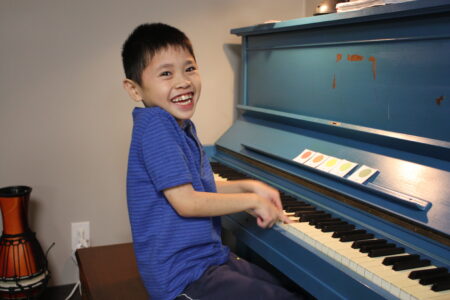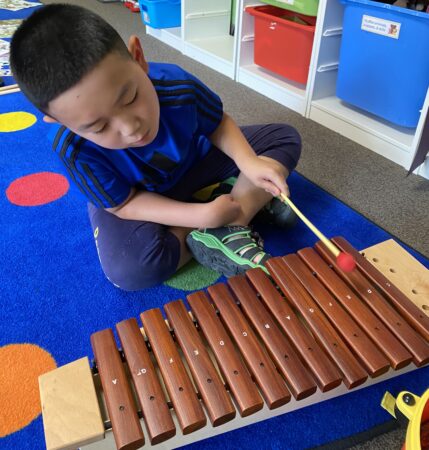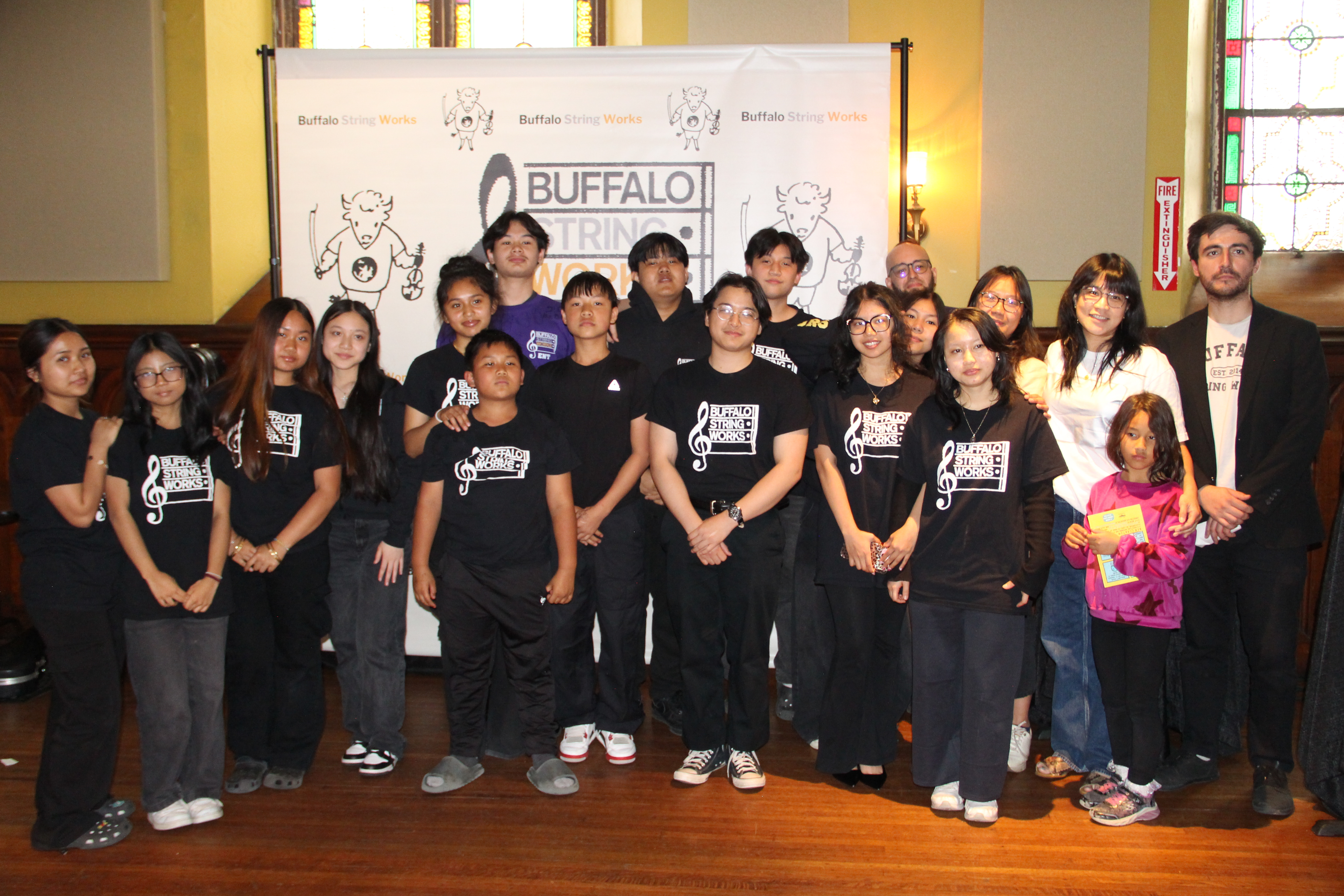
Topics
News & Resources
From Accommodation to Co-Creation: How Students Continue to Transform Our Approach to Adaptive Music Education
Erin Parkes, Founder/Executive Director, and Lyanne Fortin, Communications Manager, Lotus Centre for Special Music Education

Group work prioritizes autonomy and self-expression. Photo: Lotus Centre.
When Lotus Centre for Special Music Education opened its doors in Ottawa, Canada in 2012, we thought our mission was clear: provide access to high-quality music instruction for students with exceptionalities and disabilities who were being left out of traditional lessons. What we didn’t yet realize was that our students were about to become our greatest teachers, shifting our organization from a provider of services to a learning community shaped directly by their needs and strengths.

In the beginning, our programs looked like mainstream music lessons with adaptations added in. Visual support, flexible pacing, communication aids: these were our starting points. It was meaningful work, and the impact was real. But, over time, we noticed something important: our greatest breakthroughs were coming not from our additions to the traditional model but from what we were willing to reimagine altogether.
After 13 years, our philosophy shifted. “How Do We Teach?” became “How Do Our Students Learn?” We came to understand that neurodivergent learners don’t need music watered down; they need music education reimagined with principles of agency, exploration, and identity. This change in thinking led us to redesign programs from the ground up. Our youth rock band doesn’t audition or separate roles by ability; students choose their own instruments. In our singing collective, students may sing, use vocalizations, or contribute through gestures and movements. The goal isn’t uniform performance; it’s authentic musical expression.
What makes Lotus unique today is how we design our offerings. All of our programs, from Summer Camp to our Adult Music Social, function as living laboratories. Staff are trained not only in pedagogy but also in inquiry: observe, respond, adapt, co-create. Lessons involve improvisation, to allow students to continuously regulate and stay connected. We build feedback loops with students and caretakers, and we make real-time changes based on sensory needs, emotional cues, and personal interests, on a micro and macro scale. This approach transforms engagement. Lessons that once focused on pre-planned activities now include more flow for students to set goals and direct their learning. Student experiences shape what programs we offer, based on their expressed needs and desires. Programs such as our rock band are often initiated by students, and as the programs get started, the students are encouraged to collaborate with the teacher to ensure that there is agency in student learning. Many of our students who are now adults have been introduced to leadership and volunteer roles, mentoring younger musicians.

As our programs evolved, so did our identity as an organization. We began to see the ripple effects. Families reported not only improvements in musical skills, but transformative changes in communication, self-advocacy, and mental health. Participants who had been socially isolated found a community.
The impact hasn’t been limited to our students. Our work has influenced arts organizations nationally, through partnerships with the National Arts Centre Orchestra and Ottawa Chamberfest. These collaborations have led to the first adaptive concert series in our region, spaces where audiences are free to move, vocalize, stim, or simply be, without judgment. This freedom of expression allows for an immersive experience for audience members; by entering an environment where they create their own sensory experience, they are able to experience the music without restrictions.
Over time, Lotus Centre has outgrown the role of service provider. Today, through youth leadership, community partnerships, research initiatives, and our Professional Development Institute, which trained over 1,100 educators last year, we are part of a growing movement to redefine music education as inherently adaptable, relational, and co-created. Our biggest shift has been philosophical: instead of asking how to make music more accessible, we now ask: How can music be an engine for neurodivergent expression and cultural change? As our students have shown us time and again, the answer begins in listening.
Related Content
All Regions, Community Building, Gather Together, News and Resources, Perspectives & Collective Action
Suggested Listening: Power, People & Planet Podcast with Kumi Naidoo
Patrick Scafidi
All Regions, Collaborations, Community Building, Gather Together, Middle East, News and Resources, Perspectives & Collective Action, Professional Development
Nominate a Changemaker for the Creativity for Social Change Award
Patrick Scafidi
All Regions, Community Building, Funding & Support, Gather Together, News and Resources, North America, Perspectives & Collective Action, Research
Submit Your Work to Perspectives on Arts in Health
Patrick Scafidi
Collaborations, Community Building, Events/Performances, Featured, Gather Together, North America, Strings, Teaching & Learning

An Upstate New York Community Connects through Myanmar’s Music
Patrick Scafidi


